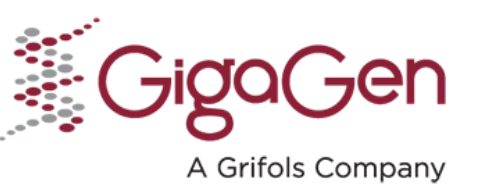GigaGen’s platform uses genomic and protein engineering to create recombinant polyclonal antibodies. It produces cell lines that generate human antibodies against diseases like HBV, supporting continuous manufacturing.
Image credits: GigaGen

Since Contagion‘s exclusive interview last year with Carter Keller, senior VP at Grifols and head of GigaGen1, discussing the development of the first recombinant human polyclonal antibody therapies aimed at creating a functional cure for Hepatitis B virus (HBV), significant progress has been made.
The new therapy, GIGA-2339, is now set to enter phase 1 clinical trials following a recent FDA approval of the company’s investigational new drug (IND) application. Developed by GigaGen, a Grifols company, GIGA-2339 is the first recombinant human polyclonal antibody treatment for HBV and the FDA approved this drug to begin trials in late 2024.2
In preclinical studies, GIGA-2339 showed more than 2000 times the potency of current plasma-derived HBV treatments, suggesting it could effectively neutralize and clear the virus. This unique therapy could potentially provide a functional cure for HBV and can be scaled efficiently in a lab setting.2
Currently, there is no cure for HBV, and existing treatments offer only minimal reductions in HBV protein levels, leaving patients vulnerable to conditions such as hepatocellular carcinoma and cirrhosis. GIGA-2339 aims to address this gap by using more than 1000 anti-HBV antibodies, replicated from the natural immune response of vaccinated donors.2
Main Takeaways
- GIGA-2339, the first recombinant human polyclonal antibody therapy for HBV, has progressed to phase 1 clinical trials following FDA approval of an IND.
- In preclinical studies, GIGA-2339 demonstrated over 2,000 times the potency of current treatments, suggesting a potentially more effective approach to neutralizing HBV.
- The therapy leverages more than 1000 engineered anti-HBV antibodies to mimic natural immune responses, offering hope for a functional cure for the virus.
Keller discussed, GIGA-2339, a recombinant polyclonal therapy. This investigational therapy consisted of over 1,000 anti-HBV antibodies engineered in the lab to mimic natural immune responses, with the potential to address a wide range of HBV variants.1
The development process began with blood from HBV-vaccinated donors, from which GigaGen isolated antibody-producing B cells. These cells were used to extract antibody-coding DNA and create cell lines that produced synthetic human antibodies targeting HBV.1
GIGA-2339 represented the first recombinant human polyclonal antibody therapy for HBV, leveraging a platform designed to replicate the immune responses of top human donors. Keller emphasized the benefit of this multifaceted approach, “We captured immune systems, from people who’ve been vaccinated with hepatitis B vaccine, and we took the best immune responses, and ran those through our platform, and then from the diversity of those immune responses, we filtered out the antibodies that were focused just on hepatitis B surface antigen…we believe it has a real chance to cure [HBV].”1
General Definition and Issue of HBV
HBV can be acute (short-term) or chronic (long-term), acute hepatitis B occurs within the first 6 months after exposure to HBV and may cause mild to severe illness. Chronic hepatitis B can develop from acute hepatitis B and may lead to serious liver conditions like cirrhosis and liver cancer.3
The main issue with HBV is that it is highly contagious and spreads through contact with infected blood and body fluids. Many individuals are unaware of their infection, especially in the chronic phase, which contributes to its spread and can lead to severe health issues. Vaccination is the best prevention method, but challenges remain in achieving widespread vaccination and regular screening, particularly in high-risk groups.3
In summary, GIGA-2339, the first recombinant human polyclonal antibody therapy for hepatitis B, is moving to phase 1 clinical trials after FDA approval of the application. Developed by GigaGen, it has demonstrated significant potency in preclinical studies, offering a promising advancement in treating HBV. This development is crucial given the ongoing challenges in effectively managing the virus.
Watch and listen to our entire interview from July 2023 with Carter Keller: Harnessing Recombinant Human Polyclonal Antibodies for Potential HBV Treatment, Cure.
References
-
Parkinson J. Harnessing Recombinant Human Polyclonal Antibodies for Potential HBV Treatment, Cure. Contagion. Published July 23, 2024. Accessed August 6, 2024. https://www.contagionlive.com/view/harnessing-recombinant-human-polyclonal-antibodies-for-potential-hbv-treatment-cure
-
GRIFOLS. GigaGen Receives FDA Clearance of IND Application for Phase 1 Trial of Recombinant Polyclonal for HBV Treatment, GIGA-2339. Published July 31, 2024. Accessed August 6, 2024. https://www.grifols.com/en/view-news/-/news/gigagen-receives-fda-clearance-of-ind-application-for-phase-1-trial-of-recombinant-polyclonal-for-hbv-treatment-giga-2339
-
CDC. Hepatitis B Basics. Hepatitis B. Updated January 12, 2024. Accessed August 6, 2024. https://www.cdc.gov/hepatitis-b/about/index.html








